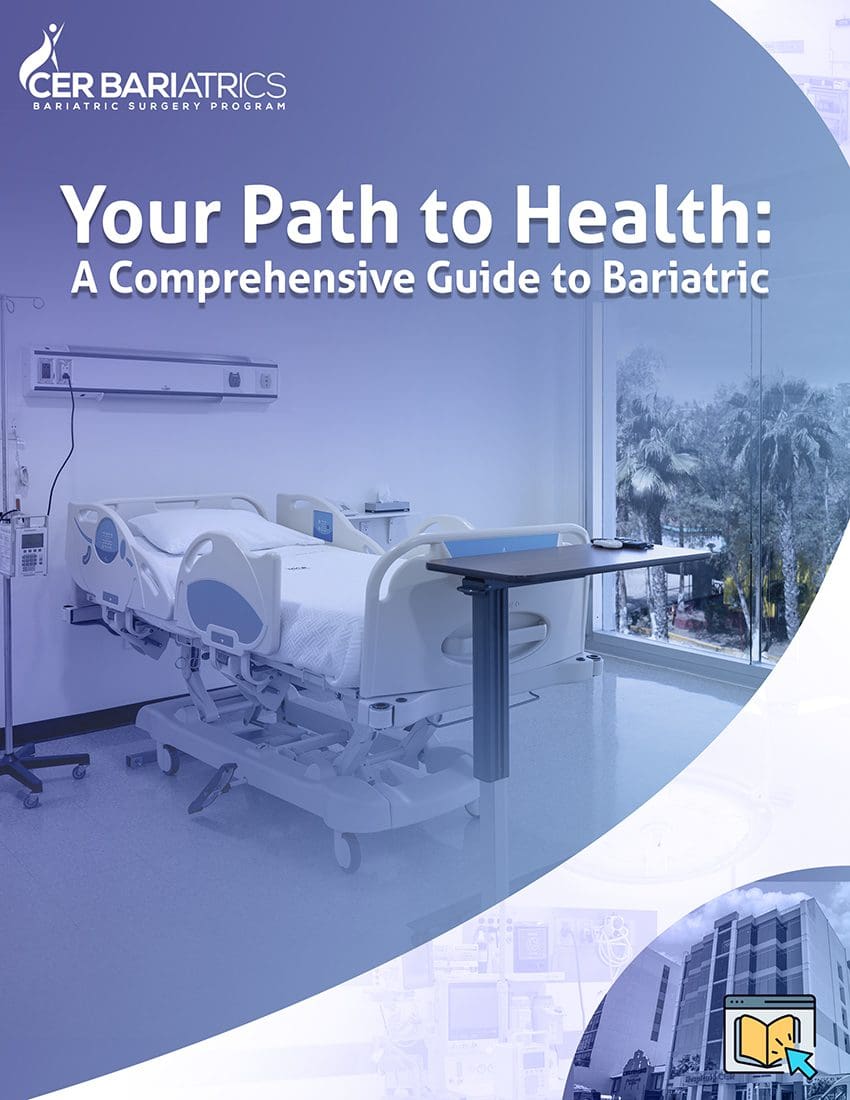bariatric surgery in Mexico: How to prepare for?
bariatric surgery in Mexico requires careful planning and lifestyle adjustments. Follow these key steps to enhance your readiness for the procedure:
- Establish and Maintain a Workout Routine: Regular exercise is crucial for achieving and maintaining your weight loss goals. Start incorporating a workout routine into your daily life to improve your overall fitness and boost your chances of success.
- Adjust Your Daily Calorie Intake: Consult with your doctor to determine the appropriate calorie range for your individual needs. In general, aim for a daily intake between 1200 and 1500 calories to support weight loss and provide proper nutrition. Adhering to a balanced and controlled diet is essential for your overall health and surgical outcomes.
- Limit Caffeine Consumption: Approximately one month before your surgery, it is advisable to reduce or eliminate your intake of caffeinated beverages. Caffeine can affect your body’s hydration levels and may interfere with the surgical process. Prioritize hydrating fluids, such as water, to prepare your body for the procedure.
By following these guidelines, you can optimize your physical readiness for Bariatric Surgery in Mexico.
Patients considering weight loss surgery often wonder how their lives will change. Bariatric surgery is a powerful tool that can significantly impact various aspects of life. Weight loss surgery helps achieve substantial weight reduction, improving overall health and addressing conditions associated with obesity. However, to embark on this transformative journey successfully, patients must commit to permanent lifestyle changes before and after the surgery. The more thought and effort you invest in preparing and making these changes, the smoother the transition will be.
If you’re planning to undergo weight loss surgery in Mexico like sleeve gastrectomy, gastric banding, or gastric bypass in Mexico, it’s crucial to prepare for a restful and successful recovery, ensuring a seamless adjustment to the new lifestyle. Preparing for weight loss surgery requires significant effort and time. Being well-prepared and having a structured plan will help you relax before the surgery while focusing on the necessary steps for a smooth recovery.
The process of undergoing bariatric surgery can be mentally and physically challenging, similar to any major life change. Preparation varies for each individual, and we aim to provide you with a couple of steps to facilitate your decision-making process, leaving you ready to embark on a new life.
What Is Required Before Bariatric surgery in Mexico?
Approaching this procedure step by step can ease the transition and help build healthy habits that will stay with you in the long run. Bariatric specialists typically establish strict guidelines regarding the necessary changes before the surgery. However, here are six steps that will help you adapt and prepare for the upcoming operation:
- Lifestyle Changes: Mental preparation is crucial for your weight loss surgery journey. Start by eliminating unhealthy habits and scheduling monthly changes. For instance, dedicate the first month to quitting take-out meals and the second month to quitting smoking. This gradual approach will mentally prepare you for the impending changes. Here is a list of habits you need to address:
- Stop smoking
- Limit or eliminate alcohol intake
- Start incorporating daily exercise for a few minutes
- Begin taking a multivitamin
- Modify your eating habits
Adjustment is never easy, so seek support from your bariatric expert, as well as friends and family.
- Giving Food a New Meaning: Surgery will alter your relationship with food, especially regarding portion control. However, it’s up to you to change your eating habits and the reasons behind your food choices. Starting months before the surgery, transition to your new diet gradually. Create a safe food environment and eliminate mindless eating habits.
- Discussing Expectations: To ensure a smooth transition, it’s essential to set realistic expectations for post-surgery outcomes. Discuss your goals with your surgeon, and be confident in expressing your expectations and understanding the steps to achieve them. Remember, weight loss surgery is a tool and not an instant solution. Set realistic goals and be patient with the process, as weight loss varies among individuals.
- Medication Considerations: Consult your doctor regarding any necessary changes to your medication. Avoid certain medications, such as aspirin, blood thinners, or non-steroidal anti-inflammatory drugs, one week prior to surgery. If you require these medications for specific reasons, discuss them with your doctor and surgeon to determine the best course of action.
- Pre-Surgery Diet: Approximately two to three weeks before the surgery, you will be placed on a high-protein, very low-calorie pre-operative diet. To ease the transition, start making small changes to your eating habits beforehand. Eliminate fats, high-sugar foods, and carbonated drinks from your diet. This pre-operative diet aims to reduce fat and improve the ease and safety of the surgery. Research conducted by Stanford University’s School of Medicine has shown that patients who adjust their eating habits before the surgery tend to experience greater weight loss afterward. Additionally, adhering to this diet can reduce the time spent in the operating room during the surgery.
- Arranging for Post-Surgery Needs: To ensure a smooth recovery, it’s helpful to make necessary arrangements in advance. Collect all the required paperwork and medical history documents, attend support groups or informational meetings, and make arrangements for the care of your children or pets. Plan your post-surgery transportation and prepare meals according to the recommended diet provided by your surgeon.
What to Bring to the Hospital:
To be fully prepared for your bariatric surgery, consider packing the following items when you go to the hospital:
- Comfortable nightwear and slippers
- Personal toiletries, including mouthwash, as your digestive system will be altered, potentially causing bad breath
- Any required medications for your stay
- Loose-fitting, easy-to-put-on clothes
- Books, magazines, or other forms of entertainment
- Devices to keep in touch with friends and family after the surgery
After the Surgery: Now that you are well-prepared for your weight loss journey, the real challenge lies in maintaining the changes and following through with your new lifestyle. Regular visits to your bariatric surgeon are highly recommended, as they help build a strong relationship and provide an opportunity to address any challenges. It is crucial to stay accountable for your decisions and persist in your hard work. Keep a diary to track your progress and maintain honesty with yourself.
For further inquiries about weight loss surgery, feel free to reach out to one of our bariatric experts at CER Bariatrics. They will guide you through the entire process and encourage the changes you wish to see in yourself.
Related Post
Learn how to kickstart your weight loss journey





